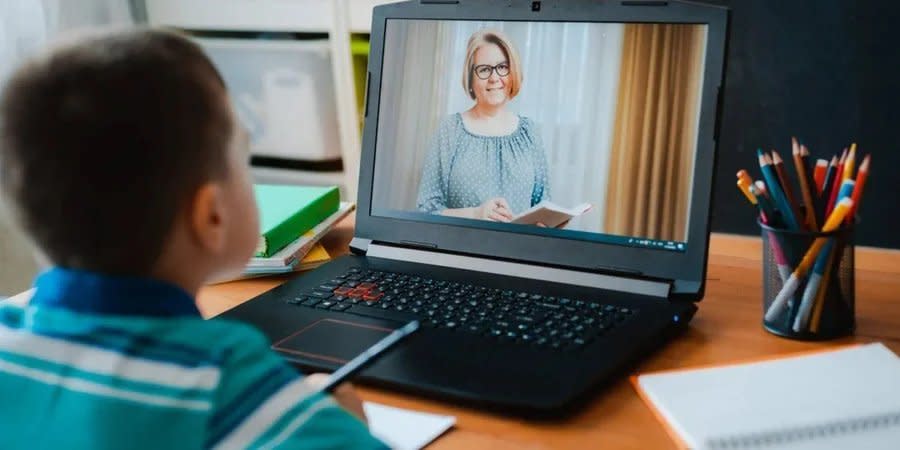Ukraine’s Education Minister on negative consequences of distance learning for schoolchildren

Ukrainian Education Minister Oksen Lysovyi highlighted the adverse impact of distance learning in an interview with Radio NV on Feb. 15, urging a return to offline education amid concerns over declining quality worsened by the ongoing war, yet expressing optimism about raising Ukraine’s education standards to European levels despite financial constraints.
Currently, 900,000 Ukrainian students study online, he said, calling for as many children as possible to return to full-time offline education, as “unfortunately, distance education does not always provide the appropriate quality.”
“This has been proven not only by Ukraine’s experience, but also by the experience of many countries that have gone through the COVID period and are now analyzing its consequences. Ukraine also participated in the Program for International Student Assessment (PISA), right in the active phase of the war, and we see a decline in the skills of students in the overall dynamics. The decline occurred in many countries that participated in the study, and we are part of this negative trend. In our case, the war and the inability to get all the children out of school continue to affect the decline.”
According to Lysovyi, there are educational losses in Ukraine due to distance learning - the gap between what students in the country as a whole have to learn at their stage of education.
Read also: ‘What parents and students have been dreaming of’ — Ukrainian schools to introduce elective courses
“We estimate the losses at an average of one and a half years, and we also have educational gaps, such as a noticeable difference in the quality of education in urban and rural areas. Across the country, there is a significant lag in reading skills, both in understanding and analyzing text. We lag in science and math. In rural areas, these gaps are greater than in urban areas.”
In rural areas, girls lag behind boys in education, especially in science.
“We see and recognize these problems, and they require a set of policies to address them.”
Ukraine’s financial constraints do not allow it to launch a large national program to overcome the losses and gaps, as is done in Europe by creating small study groups and introducing individualized lessons with students.
Read also: Ukraine plans to reform national defense education
“What we can afford is additional online learning,” Lysovyi said.
“Now, together with non-governmental organizations (NGOs) and some enthusiastic parliament members (MPs), we are preparing a platform for overcoming educational losses that will allow children to catch up with their knowledge online.”
He assured that the level of education in Ukraine can be raised to the European level, as “a number of schools in cities are doing well, and students’ results in PISA are not lower than those of their peers in Germany or Britain.”
In December 2023, Zoya Lytvyn, the founder of the NGO Osvitoria and the Kyiv’s Novopechersk School, spoke about Ukraine’s PISA results, the world’s most important study on the quality of education in different countries.
It showed that children from villages are 4 years behind in math and 5 years behind in reading. The scores of children from big cities have hardly changed, and in some places have even increased.
Read also: Academic Dishonor award: Ukrainian Education Minister is Plagiarist of the Year 2023
Lytvyn noted that Ukrainian schoolchildren have lost the least in the quality of education in math, which was already low, and that their skills in science have deteriorated, but “the saddest situation is in reading comprehension”.
“It is an impressive figure - 41% of 15-year-olds have not mastered reading comprehension at the basic level, which is the key to quality learning in the future,” she wrote in her blog.
“In 2018, that figure was 25%. In math, only 58% of 15-year-olds in Ukraine have reached the basic level. Our children are about 1.5 years behind students from developed OECD countries in math and science.”
We’re bringing the voice of Ukraine to the world. Support us with a one-time donation, or become a Patron!
Read the original article on The New Voice of Ukraine

